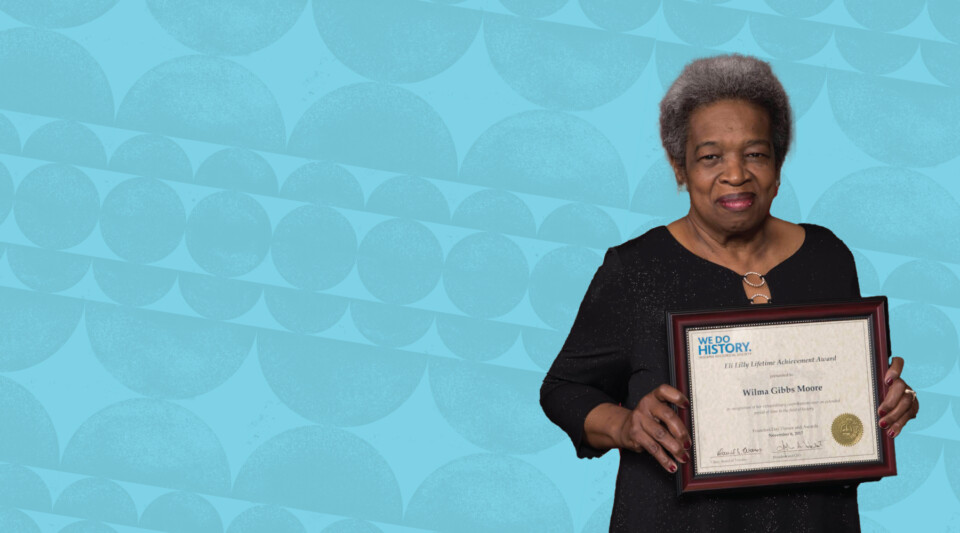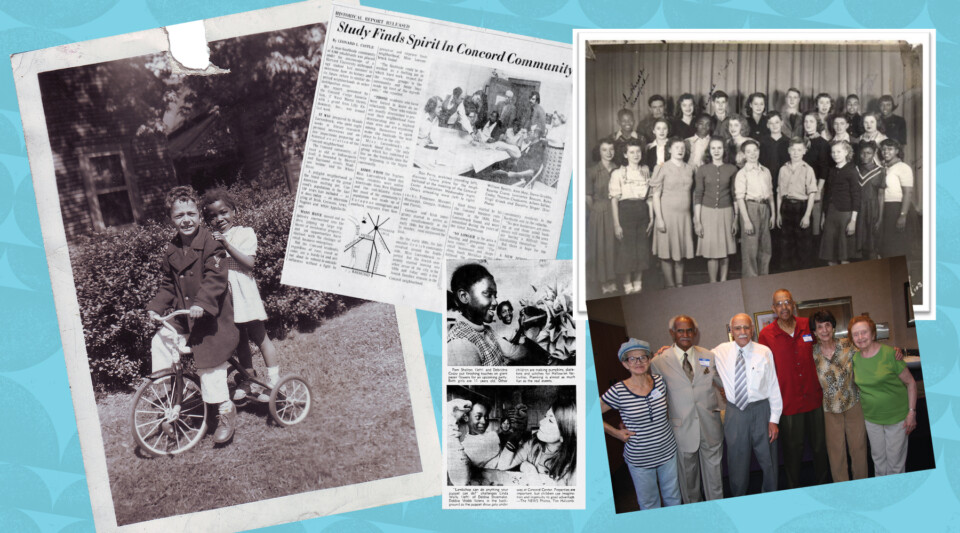
Wilma Gibbs Moore Fellowships
We believe that the humanities provide context for understanding complex issues and that they can be a force for strengthening the civic fabric of our state. Outstanding public humanities programs, which can bring Hoosiers together to talk through differences and solve problems, are rooted in high-quality humanities scholarship. Our purpose is to increase the amount and quality of such humanities scholarship about Indiana.
To learn more, including how to apply for the 2025 fellowship, read the call for proposals (and see the Grant Details section below).
2024 Fellows Announced

2024 cohort of Wilma Gibbs Moore fellows announced
Indiana Humanities has awarded fellowships of $5,000 for five humanities-based research projects that examine anti-Black racial injustice and structural racism in Indiana. Fellowship-supported research will examine the history of the oppression of Black Hoosiers in Knox County, the lynching of Black WWII veteran James Edward Person, the history of activism in Indianapolis’ Babe Denny neighborhood, and other topics.
Learn moreGrant Details
Goals and Timeline
Our Goals for the Fellowship
- Understand Black Hoosiers’ responses to racial injustice and structural racism through the creative arts and/or involvement with political, economic, social and cultural programs/activities at the neighborhood, city or state level.
- Increase knowledge of Black Hoosiers’ strategies for overcoming racial injustice and structural racism over time.
- Increase the amount and quality of humanities scholarship on the causes and effects of racial injustice and structural racism in Indiana.
- Document and/or analyze the decisions, policies and actions that created racial inequality in the past and/or the present.
- Add or expand the stories of Hoosiers in regional and national historiographies of racial injustice and/or structural racism.
- Increase the use of Indiana-based archives and collections by humanities scholars and researchers.
Timeline
- Applications Open: Jan. 1, 2025
- Draft Applications Due: Feb. 28, 2025
- Final Applications Due: April 30, 2025
- Applicants Notified: June 16, 2025 (tentative)
- Work May Begin: Upon notification
- Interim Report Due: Dec. 31, 2025
- Work Must Be Concluded By: June 30, 2026
- Final Report Due: June 30, 2026
Apply Now
To apply for the 2025 Wilma Gibbs Moore Fellowship, read the call for proposals and follow the directions in the “How to Apply” section beginning on page 3.
About Wilma Gibbs Moore
Wilma Gibbs Moore was one of Indiana’s preeminent scholars of African American history. She served as an archivist and librarian at the Indiana Historical Society for more than 30 years and edited the Society’s Black History News and Notes publication. A graduate of Indianapolis’s famed Crispus Attucks High School and Indiana University, Moore contributed her knowledge and expertise to a number of organizations promoting African American history and culture, including the Association for the Study of African American Life and History, the Indiana African American Genealogy Group, Indiana Freedom Trails, Indiana Landmarks’ African American Landmarks Committee and more. In recognition of her work, the American Association for State and Local History gave her an Award of Merit, and the Indiana Historical Society honored her with the Eli Lilly Lifetime Achievement Award. We’re proud to offer this fellowship in her honor.
To learn more about Wilma Gibbs Moore’s legacy, read this article in the Indianapolis Recorder and this blog post by her Indiana Historical Society colleague Ray Boomhower.
Previous Wilma Gibbs Moore Fellowship Projects
The 2023 Wilma Gibbs Moore Fellowship projects were:
- What Lies Beneath: The Monon Trail, the Indianapolis Sewage System, and the Politics of Race | Fellow: Leon Bates
- Roberts Settlement, a Pioneer Story: Through the Lens of the Children | Fellow: Susan Hall Dotson
- On Etheridge Knight: Letters, Interviews, Essays and Review | Fellow: Norm Minnick
- Indiana University’s Segregated Student Teaching | Fellow: Jo Otremba
- black m|othering | Fellow: elle roberts
- Notes from Natatorial Naptown: A Counter Story to Anti-Black Violence in Indianapolis Aquatics | Fellow: Teigha Mae VanHester
The 2022 Wilma Gibbs Moore Fellowship projects were:
- Reviving a Forgotten Freetown: Preserving the Legacy of the U.S. Colored Troops in Southeast Indianapolis | Fellow: Kaila Austin
- Black Poetics of Place | Fellow: Danicia Monét Malone
- An Unequal Burden | Fellow: Britt Redd
- Obstetric Racism in Indiana: How Hoosier Doulas Resist Anti-Black Racism in Birth | Fellows: Julie Johnson Searcy, Angela Castañeda and Nicole Burts
The 2020 Wilma Gibbs Moore Fellowship projects were:
- A Judgment Call: Indianapolis, Redlining, and Unjust Legacies | Fellow: Jordan Ryan
- Borderline Freedom: Free and Fugitive Black Women in Rural East Central Indiana before the Civil War | Fellow: Jazma Sutton
- “Tired of Going to Funerals”: Transforming Protest into Policy at the 1972 National Black Political Convention in Gary, Indiana | Fellow: Nicole Poletika
- Securing a More Abundant Life: The Indianapolis Phyllis Wheatley YWCA, 1910s–1959 | Fellows: Nancy Marie Robertson, Joseph L. Tucker Edmonds and Kim Williams-Pulfer
Questions?
Contact George Hanlin, Director of Grants:
ghanlin@indianahumanities.org | 317.616.9784